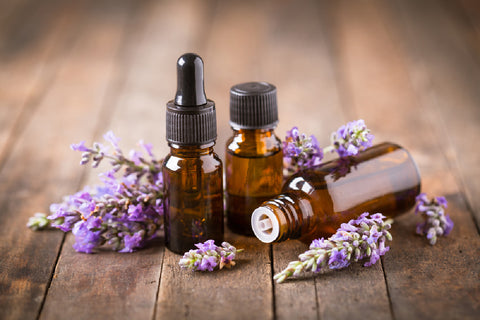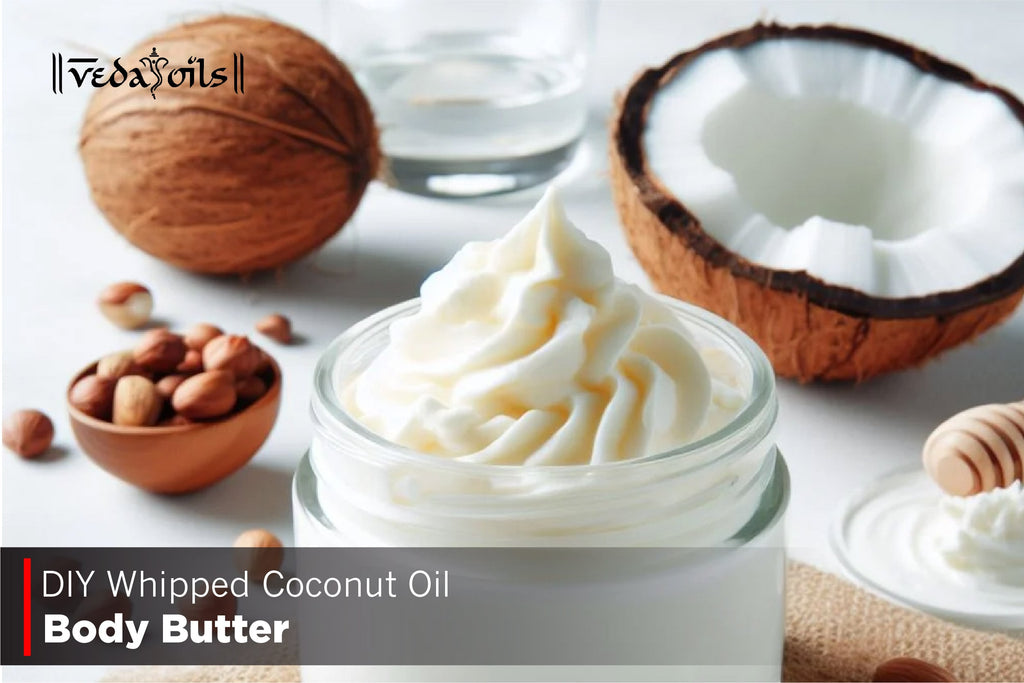Essential Oils For Cystic Acne Treatment
Essential oils have become popular as natural remedies for various skin conditions, including cystic acne. Cystic acne is a severe acne characterized by deep, painful, and inflamed breakouts. While there is no overnight cure for cystic acne, certain essential oils can help alleviate its symptoms and promote healthier skin.

Essential oils such as oregano, lavender, tea tree, and others offer antimicrobial, anti-inflammatory, and soothing properties that can aid in reducing inflammation, killing acne-causing bacteria, and promoting skin healing. When used properly and in conjunction with a consistent skincare routine, essential oils can be a valuable addition to managing cystic acne, providing potential relief and improving overall skin health.
Top 11 Essential Oils For Cystic Acne Scars
You need something special and powerful for this severe acne. These acnes are more problematic than regular ones. Let’s see what the natural alternative is to deal with oil and dead cell buildup to reduce cystic acne. Here are the top 8 essential oil for cystic acne you can use right now.
1. Oregano Essential Oil For Cystic Acne
Oregano essential oil contains carvacrol and thymol, which have strong antimicrobial effects and can help combat the bacteria responsible for acne breakouts. This is a nice ingredient to blend with to deal with dead skin and oil buildup.
Oregano essential oil is known for its potent antimicrobial and anti-inflammatory properties, making it a popular natural remedy for cystic acne. Additionally, it has anti-inflammatory properties that can reduce redness, swelling, and pain associated with cystic acne.
2. Lavender Essential Oil For Cystic Acne
Lavender essential oil may help heal acne-prone skin. It promotes skin healing and regeneration. Also, its relaxing aroma can reduce stress and anxiety, which can cause acne. As part of a holistic approach, using essential oils for cystic acne can effectively soothe the skin and manage breakouts naturally.
Lavender essential oil is renowned for its soothing properties, making it an effective option for managing cystic acne. Its anti-inflammatory and antibacterial properties can help reduce the swelling and redness associated with acne breakouts.
3. Peppermint Essential Oil For Cystic Acne
Peppermint essential oil possesses cooling and anti-inflammatory properties that can relieve cystic acne. Its natural menthol content can help soothe inflammation and reduce redness.
Peppermint essential oil also has antimicrobial properties, which may help fight the bacteria contributing to acne breakouts. It is also an excellent skin moisturizer that cleans up oil buildup. This both prevents and cures cystic acne.
4. Clove Essential Oil For Cystic Acne
Clove essential oil contains eugenol, which exhibits strong antibacterial effects against acne-causing bacteria. It also has numbing properties, which can help alleviate pain associated with inflamed cystic acne.

Clove essential oil is well-known for its potent antimicrobial and anti-inflammatory properties, making it a popular choice for treating cystic acne. It also offers anti-fungal properties, which help prevent redness and infections.
5. Frankincense Essential Oil For Cystic Acne
Frankincense essential oil has long been valued for its skin benefits. It is due to its anti-inflammatory and antimicrobial properties. These qualities make it a good choice for finding essential oils for cystic acne. Frankincense essential oil is a top natural remedy for cystic acne. It reduces redness, swelling, and discomfort. It also promotes healing and skin regeneration.

Frankincense essential oil can help reduce redness, swelling, and pain associated with acne breakouts. It also supports skin regeneration and healing, potentially aiding in the recovery process of acne-prone skin.
6. Rosemary Essential Oil For Cystic Acne
Rosemary essential oil is known for its antiseptic and anti-inflammatory properties, making it a potential natural remedy for cystic acne. It can help reduce inflammation, redness, and swelling associated with acne breakouts.

Rosemary essential oil also has antimicrobial effects that may aid in combating acne-causing bacteria. Additionally, it contains antioxidants that can support skin health and promote healing. This essential oil also carries an amazingly sweet and floral scent.
7. Lemon Essential Oil For Cystic Acne
Lemon essential oil is known for its brightening and purifying properties, which can benefit cystic acne. It contains citric acid, which can help exfoliate the skin and unclog pores, reducing the likelihood of breakouts.

It also has antibacterial properties that can combat acne-causing bacteria. Lemon essential oil is refreshing and offers skin hydration. This essential oil is excellent for making anti-cystic acne blends.
8. Tea Tree Essential Oil For Cystic Acne
Tea tree essential oil is one of the most popular natural remedies for cystic acne due to its powerful antimicrobial properties. It contains terpinen-4-ol, which can effectively target and kill acne-causing bacteria. When looking for essential oils for cystic acne, tea tree oil is a top choice for its effectiveness in clearing skin.

Tea tree essential oil also possesses anti-inflammatory properties that can help reduce swelling and redness associated with cystic acne. When properly diluted and applied topically, it can help unclog pores, prevent further breakouts, and promote skin healing.
9.Eucalyptus Essential Oil for Hormonal Acne
Eucalyptus essential oil can reduce inflammation and kill bacteria. So, it is a good remedy for hormonal acne. It helps reduce inflammation, unclog pores, and fight acne-causing bacteria. It can be a natural cure for hormonal acne. It promotes clearer skin and balances excess oil.

Eucalyptus oil can soothe irritated skin, reduce redness, and prevent outbreaks. Use it on affected areas. Its antimicrobial action helps keep skin free from harmful bacteria. It offers a holistic way to manage hormonal acne.
10. Lemongrass Essential oil for Pimples
Lemongrass essential oil is a great natural remedy for pimples. It has antiseptic and astringent properties. It helps cleanse the skin, reduce oil, and minimise pores. Its antibacterial properties prevent bacterial growth, which is often the cause of pimples.

Lemongrass oil can soothe inflamed skin, reduce redness, and heal pimples. Its refreshing scent calms and helps to fight pimples. It leaves skin clearer and healthier.
11. Bergamot Essential Oil for Cystic Acne and Dark Spots
Bergamot essential oil is highly effective for treating acne and dark spots. It fights bacteria and soothes inflammation, helping to reduce acne. It also regulates oil production, preventing clogged pores. So, it's a great choice for essential oils for treating cystic acne.

For dark spots, bergamot oil helps. It brightens and regenerates skin, slowly fading hyperpigmentation. Its natural healing properties promote clearer, more even-toned skin. So, it's a great addition to any acne and dark spot treatment routine.
Essential Oil Recipe For Hormonal Cystic Acne
An essential oil blend is the best way to deal with cystic acne. This magical blend is easy to make and use. Here’s a list of ingredients and a step-by-step recipe for cystic acne.
Ingredients:
- Clove Essential Oil - 1 Drop
- Oregano Essential Oil - 2 Drops
- Lavender Essential Oil - 2 Drops
- Tea Tree Essential Oil - 2 Drops
- Virgin Coconut Oil - 1 Tablespoon
- Frankincense Essential Oil - 1 Drop
Directions:
Step 1: Add the drops of each essential oil to a small, dark glass bottle.

Step 2: Add the carrier oil to the bottle and tightly seal it.
Step 3: Gently roll the bottle between your palms to mix the oils thoroughly.
Step 4: Cleanse and dry your skin before applying the blend to your face.
Step 5: Take a small amount of the blend and apply it to the affected areas of cystic acne.
Step 6: Massage it gently into the skin using circular motions.
Step 7: Leave the blend overnight or for at least 30 minutes before rinsing it off.
Step 8: Perform a patch test before using the blend to check for sensitivities or allergies.
Step 9: Store the remaining blend in a cool, dark place.
Disclaimer: It is important to dilute essential oils and their blends before applying them topically, as they can be highly concentrated and irritate the skin. To perform a patch test, dilute the essential oil, apply a small amount to a clean skin area, and leave it undisturbed for 24 hours. Observe for any signs of irritation, redness, or discomfort.
How to Use Essential Oils for Cystic Acne?
Essential oils can help treat acne with their antibacterial and soothing properties. To use them safely, first dilute the essential oil with a carrier oil like coconut or jojoba oil. Mix 2-3 drops of essential oil with a tablespoon of carrier oil.

Gently apply the mixture to the acne spots using a cotton swab or your fingers. You can also add a few drops to your regular moisturizer or face mask. Always do a patch test before applying essential oils to your skin to avoid any irritation. Use regularly for the best results.
Conclusion
Do you like our take on essential oils for cystic acne? Incorporating essential oils like oregano, lavender, tea tree, clove, and frankincense from VedaOils into your skincare routine may help reduce inflammation, combat acne-causing bacteria, and promote healing for cystic acne naturally. Remember to dilute the oils properly and perform a patch test before use.
You May Also Like:
Buy Products
-
 Clove Bud Essential Oil
Clove Bud Essential Oil -
 Frankincense Essential Oil
Frankincense Essential Oil -
 Lemon Essential Oil
Lemon Essential Oil -
 Rosemary Essential Oil
Rosemary Essential Oil -
 Tea Tree Essential Oil
Tea Tree Essential Oil
Related Articles
Disclaimer :- This article is intended for informational and educational purposes only and should not be considered a substitute for professional medical advice. For specific health concerns or treatment, please consult your personal physician. The article's editor, writer, and VedaOils organization do not assume any responsibility for any health outcomes resulting from the information provided. Readers are strongly encouraged to seek advice from their physician before acting on any recommendations made in these articles.
















 Sign in
Sign in Register now
Register now My Reward Points
My Reward Points












